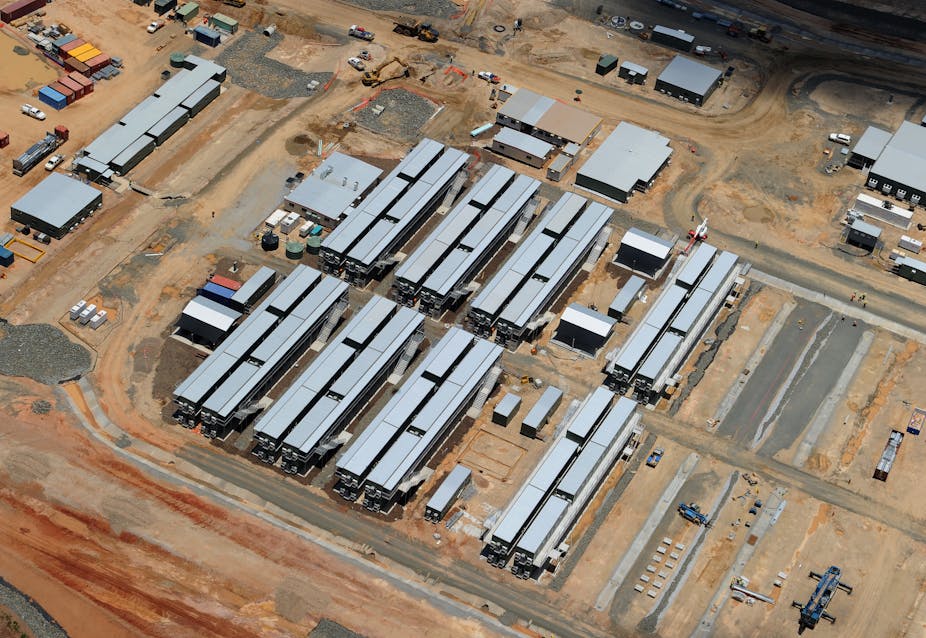With the debate increasing over coal seam gas (CSG) exploration, and all sides claiming the moral high ground, how do you find out what the community really thinks about the issue? Well you could do what the mayor of a country town faced with expanding CSG developments did: ask people what they think.
Lismore City Council was the first in Australia to run a referendum-style poll on CSG at the NSW local council elections last September.
The poll question itself was developed independently by researchers at Southern Cross University (SCU) through a process of consultation with relevant stakeholder groups, and implemented by the Australian Electoral Commission. Most voters (97%) took the opportunity to respond to the poll question:
Do you support CSG exploration and production in the Lismore City Council area?
Some 87% ticked the “no” box.
In order to gain a more in-depth understanding of community perspectives beyond the simple yes/no response, the University developed an exit-poll survey. Given the contentious nature of the issue, the utmost care was taken to maintain impartiality at every stage of survey design and implementation, so that different community perspectives could be captured accurately. Forty trained SCU volunteers approached voters at all poll booths in the electorate, gaining a sample size of 1036 voters (4.2% of the electorate).
Survey respondents were asked how they voted in the poll; where they got their information about CSG from; what they saw CSG bringing to the region; whether they agreed with their family and friends on the topic; whether they would be prepared to change their mind on the issue; and whether they felt they could impact government decision-making.
The survey was representative of the poll vote, with 87% of survey participants indicating they had voted “no” to the poll question. When asked where they got their information from, word of mouth was the primary information source, followed by local media. About 5% of respondents claimed to use scientific papers directly.
Key concerns from non-supporters were the potential long-term impacts on water systems, on the natural environment and on quality of life. Almost a third of respondents took the opportunity to make comments, which helped to better understand patterns in the survey. Many were strongly worded and straight to the point:
Don’t ruin our water for a short-term cash grab.
This is a grab for foreign benefits railroading their production without clear scientific or procedural investigation/tests.
Supporters of the industry saw jobs and an improved regional economy as major benefits of the industry, with many seeing CSG to be a clean energy source.
(I) support CSG provided well-managed strategies.
Overall, a large proportion of survey respondents regarded the current legislation, regulation and monitoring of the CSG industry as inadequate. Another key issue raised by non-supporters, supporters and undecided respondents alike was the issue of research. They said that more research needed to be done to prove the industry safe prior to further development. But comments also related to a mistrust in science, including the ability of researchers to be impartial. The highest number of comments from undecided respondents related to this. For example:
More information from independent source on whether CSG is good or bad. At present all we have is two sides making their influence & decision making to say either good or bad.
Such comments from supporters of CSG were:
More regulation on exploration licenses is needed, and more scientific research into the CSG production is required.
This poll (and today’s vote) doesn’t allow me to say that I support CSG but only under strict conditions (and only if they can be agreed and met).
There were a number of comments from non-supporters urging that the industry increase its transparency, slow down its pace and take a more precautionary approach:
A lot more work needs to be done to assess its safety. Even then the “roll out” of the industry should be slow and cautious so that unforseen problems that arise will only affect a smaller amount of land.
When asked whether they would be prepared to change their minds on the topic, 53% of non-supporters and 88% of those in support of the industry said they might.
On the other hand, less than 10% of supporters claimed to have their minds made up, and over 40% of non-supporters had their minds made up. Comments showed this choice to be often due to a view that the industry was simply not needed, with renewable energy technologies able to supply Australia’s growing energy demand.
I do not believe that CSG has any benefit to our local or national community. We should be better advised to investigate sustainable and environmentally positive resources.
The report also raised the potential for social disharmony, with many comments showing a strong emotional connection to this issue, and those in support of the industry experiencing isolation from the majority of their family and friends with their perspective of the industry.
The results of this survey have thrown up a lot more questions, and what we will seek to do now is carry out additional surveys and focus groups in areas experiencing various stages of CSG development. This way we can explore in a lot more depth the range of motivations of people who are for and against, to get to the bottom of the issues.
You can read the full report here.

